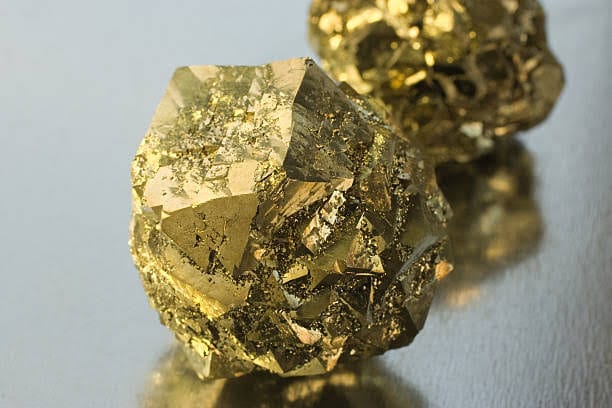Introduction
The Geology optional in the UPSC Civil Services Examination is a powerful choice for science-savvy aspirants. With its balance of theory, diagrams, and applied science, it opens the door to scoring well while developing a deeper understanding of Earth’s history, processes, and resources.
In this guide, we’ll break down the latest UPSC Geology Optional syllabus (2025), suggest a strategy to tackle it efficiently, and provide a curated booklist and resource bank to streamline your preparation.
UPSC Geology Optional – Key Facts
- Total Marks: 500
- Number of Papers: 2 (each of 250 marks)
- Question Type: Conceptual, diagram-based, and application-oriented
- Ideal Background: Science, Geology, Geography, Engineering, Environmental Studies
- Best Suited For: Candidates with analytical skills, good visual memory, and interest in Earth sciences
UPSC Geology Optional Syllabus 2025 – Paper 1 Breakdown
1. General Geology
- Origin of Solar System, Earth’s structure, earthquakes, volcanoes
- Plate tectonics, isostasy, seismic belts of India
- Sea floor spreading, island arcs, and trenches
2. Geomorphology and Remote Sensing
- Weathering, erosion, drainage systems, landforms
- Geomorphic cycles and their relation to structures and lithology
- Applications in mineral prospecting, civil engineering, and hydrology
- Interpretation of aerial photos and satellite imagery
- GIS and GPS fundamentals
3. Structural Geology
- Geological mapping, stress and strain principles
- Structural features like folds, faults, joints, lineations
- Mechanics of rock deformation and structural interpretation
4. Palaeontology
- Fossil classification, preservation modes
- Micro and macrofossils in correlation and exploration
- Evolution of mammals (Hominids, Equids, Proboscideans)
- Index fossils, Gondwana flora, and Siwalik fauna
5. Indian Stratigraphy
- Litho-, bio-, chrono- and magnetostratigraphic classification
- Precambrian and Phanerozoic successions of India
- Boundary problems: Cambrian–Precambrian, Permian–Triassic, etc.
- Tectonic evolution and palaeogeography of India
- Formation of the Himalayas
6. Hydrogeology and Engineering Geology
- Groundwater occurrence, aquifers, porosity, hydraulic conductivity
- Recharge methods, rainwater harvesting, saltwater intrusion
- Engineering properties of rocks
- Geological considerations in tunnels, dams, bridges
- Earthquake-resistant designs, landslides and mitigation
UPSC Geology Optional Syllabus 2025 – Paper 2 Breakdown
1. Mineralogy
- Crystal systems and symmetry, X-ray crystallography
- Silicate structures, physical and optical properties of minerals
- Clay minerals, twinning, pleochroism, extinction, birefringence
2. Igneous and Metamorphic Petrology
- Magma crystallization, Bowen’s reaction series
- Petrography of granites, syenites, charnockites, and alkaline rocks
- Regional/contact metamorphism, metamorphic facies, ACF-AKF diagrams
- Retrograde metamorphism, granulite terrains of India
3. Sedimentary Petrology
- Sediment transport, lithification, diagenesis
- Classification and environment of clastic/non-clastic rocks
- Sedimentary structures, facies analysis, provenance studies
4. Economic Geology
- Classification of ores and deposits, ore genesis processes
- Indian mineral deposits (Fe, Mn, Cu, Al, Au, U, etc.)
- Coal, petroleum, marine mineral resources
- National Mineral Policy, mineral conservation
5. Mining Geology
- Geological, geochemical, and geophysical prospecting techniques
- Sampling and ore reserve estimation
- Exploration of industrial and metallic ores, building stones
6. Geochemistry and Environmental Geology
- Earth’s composition, trace elements, chemical bonding
- Thermodynamics basics, isomorphism, polymorphism
- Natural hazards (earthquakes, landslides, floods)
- Environmental impacts of mining, waste disposal
- EIA, water pollution, marine pollution, climate impact
📌 Strategy to Crack the Geology Optional
- Understand the Syllabus
Start by printing the syllabus and using it as a checklist. Familiarize yourself with subtopics in each unit. - Master the Basics
Strong fundamentals in structural geology, mineralogy, stratigraphy, and plate tectonics will support all advanced topics. - Solve Previous Year Papers
Analyze at least 10–15 years of PYQs to identify frequently asked questions, especially diagram-based and conceptual ones. - Practice Diagrams
Improve your ability to draw geological structures, cross-sections, crystal forms, and field sketches. - Focus on Indian Examples
Use real-world Indian case studies wherever possible—e.g., Gondwana coal fields, Deccan Traps, Himalayan orogeny. - Time Management
Balance preparation with GS subjects. Allocate fixed weekly hours to optional prep, revision, and answer writing. - Join a Test Series (Optional)
A good test series helps you get comfortable with the paper format, improve speed, and receive feedback on content and structure. - Stay Updated
Read relevant updates on environmental geology, new discoveries, or tectonic research via science magazines and GSI reports.
📚 Best Books for UPSC Geology Optional (Topic-wise)
Plate Tectonics and Earth’s Interior
Book: Earth as an Evolving Planetary System
Author: K.C. Condie (4th Edition)
A solid foundation for understanding the dynamic earth, tectonic plates, mantle-core processes, and planetary evolution.
Mineralogy and Crystallography
Book: Manual of Mineral Science
Authors: Cornelis Klein & Barbara Dutrow (23rd Edition)
Standard reference for physical properties, crystallography, internal symmetry, mineral chemistry, and classification.
Geomorphology
Book: Fundamentals of Geomorphology
Author: Richard Huggett (5th Edition)
Covers geomorphic processes, structural landforms, weathering, soils, fluvial systems, and planetary geomorphology.
Sedimentology and Stratigraphy
Book: Principles of Sedimentology and Stratigraphy
Author: Sam Boggs Jr. (2nd Edition)
Explains textures, structures, diagenesis, provenance, and classification of sedimentary rocks in depth.
Igneous and Metamorphic Petrology
Book: Principles of Igneous and Metamorphic Petrology
Author: J.D. Winter (2nd Edition)
Covers crystallization, thermodynamics, phase diagrams, magma genesis, facies, metamorphic textures, and reactions.
Structural Geology
Book: Structural Geology
Author: Haakon Fossen (2nd Edition)
Concepts include stress, strain, rheology, faults, folds, shear zones, and tectonic regimes with modern visuals.
Economic Geology / Ore Deposits
Book: Ore Deposit Geology
Author: John Ridley (2013 Edition)
Covers classification, magmatic and hydrothermal ore processes, sedimentary ore systems, and supergene enrichment.
Geology of India
Book: Geology of India
Authors: M. Ramakrishnan & R. Vaidyanadhan
Discusses Indian cratons, mobile belts, Proterozoic basins, Gondwana, Deccan Traps, and Cenozoic geology.
Hydrogeology
Book: Groundwater Hydrology
Author: D.K. Todd (3rd Edition)
Includes aquifer properties, well hydraulics, groundwater quality, pollution, recharge, and saline intrusion.
Invertebrate Palaeontology
Book: Invertebrate Palaeontology and Evolution
Author: E.N.K. Clarkson (4th Edition)
Topics include major fossil groups: molluscs, brachiopods, echinoderms, graptolites, trilobites, and ichnology.
Vertebrate Palaeontology
Book: Vertebrate Palaeontology
Author: Michael J. Benton (5th Edition)
Discusses early fishes, tetrapod evolution, reptiles, dinosaurs, birds, mammals, and human evolution.
Engineering Geology
Book: Fundamentals of Engineering Geology
Author: F.G. Bell (2nd Edition)
Best for selective reading on slope stability, foundations, and ground investigation techniques relevant to UPSC questions.
👉 Pro tip: Don’t aim to read every book fully—target specific chapters based on the syllabus and PYQs.
🌐 Additional Resources for Geology Preparation
Journals & Reports
- Geological Society of India Journal
- Current Science
- GSI Reports and Bulletins
- Indian Journal of Geosciences
Magazines & Newsletters
- Down to Earth
- Science Reporter
- IIRS Outreach Newsletter
- IUGS e-Bulletin
Websites
- Geological Survey of India
- Ministry of Mines
- Indian Institute of Remote Sensing
📄 Download UPSC Geology Optional Syllabus PDF
We recommend keeping a copy of the official UPSC Geology syllabus handy throughout your prep.
📥 Click here to download the syllabus PDF
🏁 Final Words
Geology is more than memorizing rock types or fault lines—it’s about understanding how Earth functions as a system. With a smart, structured approach and consistent effort, Geology can be a scoring optional and an intellectually enriching choice.
Whether you come from a geology background or just have a scientific temperament, this optional gives you clarity, precision, and a definite edge in the Mains exam.
🪨 Start early, stay consistent, and practice writing answers with diagrams. That’s the golden rule for cracking the Geology optional.


